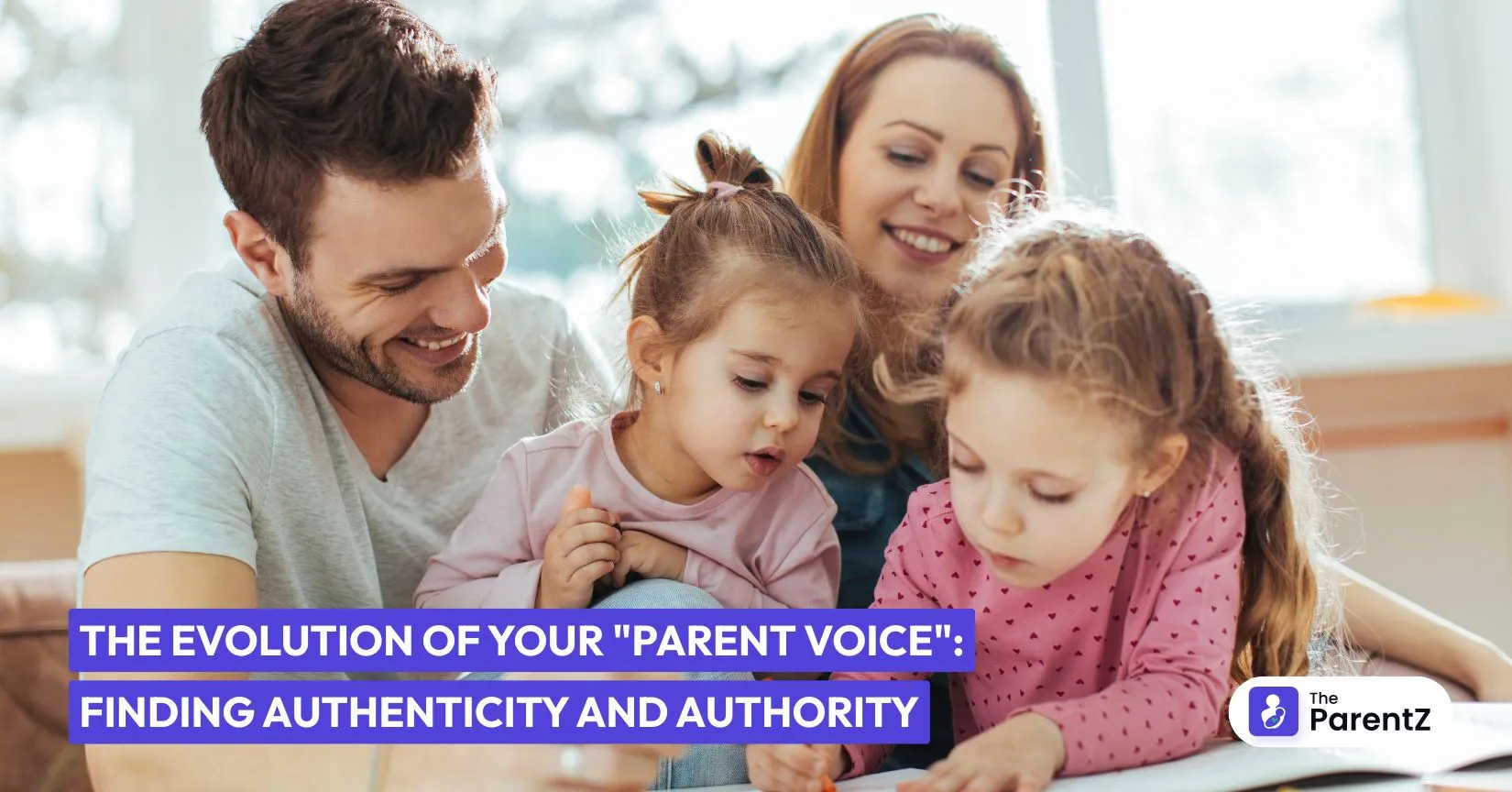Ever caught yourself saying something to your child and thought, "Wow, I sound exactly like my mom/dad right now"? That moment when you hear yourself using that distinctive tone—slightly higher pitched, maybe a bit more animated, possibly stern—is your "parent voice" in action. It's one of those parenting phenomena that seems to emerge without conscious effort, yet becomes an essential tool in your parenting toolkit.
What Is the Parent Voice, Really?
The parent voice isn’t just a louder version of a regular voice. It’s a whole language, sometimes gentle, sometimes firm, always full of meaning. It’s the voice that says, “I love you, but you still have to brush your teeth,” or “I’m proud of you, but you need to finish your homework.” It’s the voice that comforts after a nightmare and the one that says “enough” when things get out of hand.
No two parent voices are exactly the same. Some are naturally calm and soothing, others are playful or matter-of-fact. But all parent voices share a common thread: they’re about helping kids feel safe, understood, and guided.
Why Does the Parent Voice Show Up?
Raising kids is a big job. Children need boundaries, encouragement, and reassurance as they learn about the world. The parent voice is how parents provide all of that, sometimes all in the same sentence! It’s a tool for teaching, protecting, and connecting.
It also comes from instinct. When a toddler heads for the street or a sibling squabble gets heated, the “parent voice” comes out before there’s even time to think. It’s a natural response to wanting to keep kids safe and help them grow.
Authenticity and Authority: Striking the Balance
Kids are sharper than they get credit for. They can tell when a parent is being genuine and when they’re just putting on a show. That’s why the best parent voice is the one that feels real. Whether it’s gentle or firm, silly or serious, it should sound like the parent, not a character from a parenting book.
Authority is important, too. It’s not about being bossy or intimidating. True authority comes from consistency and confidence. When kids know what to expect from a parent’s voice, they feel secure. They know the boundaries are real, but so is the love behind them.
How the Parent Voice Changes Over Time
The parent voice isn’t set in stone. It grows and adapts, just like kids do. Here’s how it often changes:
- With babies: The voice is soft, soothing, and repetitive. It’s about comfort and safety.
- With toddlers: It becomes more animated, guiding little ones through routines and rules.
- With school-age kids: The parent voice explains, negotiates, and answers endless “why” questions.
- With teens: It shifts again, less about direct instructions, more about listening, setting boundaries, and showing respect for growing independence.
Sometimes, the parent voice changes within a single day! It might be playful during a family game, then firm when bedtime rolls around.
One Child or Many: Does the Parent Voice Adapt?
Absolutely. With a single child, the parent voice often becomes highly attuned to that child’s personality and moods. There’s more room for one-on-one conversations and tailored guidance.
In families with multiple kids, the parent voice can turn into a symphony, sometimes louder, sometimes more efficient, always trying to reach everyone at once. Parents might find themselves switching tones or strategies depending on which child they’re talking to. What works for a stubborn five-year-old might not work for a sensitive eight-year-old, and that’s okay.
Why the Parent Voice Matters
A strong, authentic parent voice does more than keep order. It helps kids feel safe, teaches them about boundaries, and builds trust. When parents use their voice with love and consistency, kids are more likely to listen, cooperate, and develop their own sense of right and wrong.
The parent voice also helps parents stay grounded. On tough days, it’s the anchor that keeps things from drifting too far off course.
Finding Your Authentic Parent Voice
The most effective parent voice isn't copied from a parenting book or forced into someone else's mold. It emerges naturally from your personality, values, and relationship with your child.
The best parent voice is one that feels true to who you are. Kids have remarkable detectors for inauthenticity. They respond to consistency and genuineness much more than perfection.
This doesn't mean never adjusting your approach. Parents who find themselves constantly yelling, for instance, aren't stuck with that as their default parent voice. With intention and practice, the voice can be refined.
The Benefits of a Well-Developed Parent Voice
A clear, consistent parent voice offers numerous advantages:
- Creates security through predictable communication
- Helps children understand boundaries without constant power struggles
- Builds emotional vocabulary through modeling
- Establishes family culture and values
- Reduces the need for repetition (eventually!)
Perhaps most importantly, your parent voice becomes one of your child's internal voices as they grow. The way you speak to them becomes part of how they speak to themselves.
Conclusion
Your parent voice will hit wrong notes sometimes. There will be days when you hear yourself and think, "That's not who I want to be." That's not failure—it's feedback.
The beauty of the parent voice is that it can always evolve. Each interaction offers a chance to align your communication more closely with your deepest parenting values.





Be the first one to comment on this story.